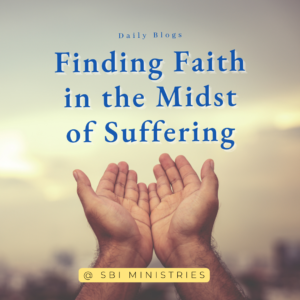Finding Strength in Weakness

In a world where strength and invincibility are often revered, it’s refreshing to be reminded that weakness can actually be a source of strength. This is precisely the message Paul conveys in II Corinthians 12:9-10, where he shares his own experience of finding strength in his weaknesses. In this passage, Paul writes:
“But he said to me, ‘My grace is sufficient for you, for my power is made perfect in weakness.’ Therefore I will boast all the more gladly about my weaknesses, so that Christ’s power may rest on me.” (II Corinthians 12:9-10)
In this powerful testimony, Paul reveals that his greatest weaknesses were transformed into opportunities for God’s glory. But what does this mean for us? How can we find strength in our own weaknesses? Let’s dive deeper into this passage and explore how we can use our weaknesses for God’s glory.
Before we dive into the practical applications, let’s take a moment to understand the context of Paul’s testimony. Paul was writing to the Corinthian church, addressing their concerns about his authority and apostolic credentials. Some in the church were questioning his authenticity, wondering if he was worthy of their respect and obedience.
In response, Paul shares a personal experience of his own weakness. He was beset with a thorn in the flesh – a physical ailment that troubled him day and night (II Corinthians 12:7). We’re not told what this thorn was, but it was clearly a significant burden that left him feeling vulnerable and helpless.
In response to Paul’s struggles, Jesus appears to him in a vision and says, “My grace is sufficient for you” (II Corinthians 12:9). This phrase is rich in meaning. “Sufficient” means more than enough; it implies an abundance of provision that meets every need. In other words, God’s grace is not just enough to get by; it’s more than enough to overcome any obstacle.
Here’s the remarkable truth: God’s power is made perfect in weakness. When we’re weak, we’re forced to rely on God’s strength, which means that His power is magnified in our lives. This is not a message of resignation or defeat; rather, it’s an invitation to find our strength in His sufficiency.
Paul takes this message one step further by boasting about his weaknesses. “Therefore I will boast all the more gladly about my weaknesses” (II Corinthians 12:9). Boasting might seem counterintuitive, but here Paul is not boasting about his accomplishments or strengths. Rather, he’s boasting about his vulnerabilities, knowing that these are opportunities for God’s power to rest upon him.
Finding strength in weakness is not about pretending to be strong when we’re not; it’s about embracing our vulnerabilities as opportunities for God’s glory. By acknowledging our weaknesses, seeking God’s strength, and using our struggles as platforms for His power, we can experience the sufficiency of His grace in our lives.
Apostle Shelia
SBI Ministries
C.B. Helping Hands Ministries
Follow Us
Stay up-to-date with our latest articles and insights by following us on social media:
https://www.facebook.com/CBHelpingHands
This website is a treasure trove of valuable information, and we’re committed to keeping it free for everyone. If our content has made a positive impact on your life, consider supporting us with a donation to help us continue sharing knowledge freely.








